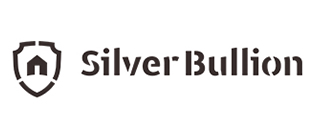Navigate
Article List
- Launch of Metals Focus’ Gold Focus 2018
By Nikos Kavalis, Director, Metals Focus
- Myanmar: Gold’s Last Frontier
By Khin Maung Han, Chairman, Myanmar Gold Development Public Company
- Will Bitcoin Replace Gold as a Modern-Day Safe Haven?
By Avtar Sandu, Senior Commodities Manager, Phillip Futures
- Why Gold is More than an Insurance Asset
By Wayne Gordon, Executive Director, Chief Investment Office, Wealth Management, UBS
- The Economics of Bitcoin and Gold
By Jan Kursawe, Crypto Economist and Financial Analyst, Vaultoro.com
- Democratising Access to Gold
By Robin Lee, CEO, HelloGold
- SBMA News
By Albert Cheng, CEO, SBMA
Article List
- Launch of Metals Focus’ Gold Focus 2018
By Nikos Kavalis, Director, Metals Focus
- Myanmar: Gold’s Last Frontier
By Khin Maung Han, Chairman, Myanmar Gold Development Public Company
- Will Bitcoin Replace Gold as a Modern-Day Safe Haven?
By Avtar Sandu, Senior Commodities Manager, Phillip Futures
- Why Gold is More than an Insurance Asset
By Wayne Gordon, Executive Director, Chief Investment Office, Wealth Management, UBS
- The Economics of Bitcoin and Gold
By Jan Kursawe, Crypto Economist and Financial Analyst, Vaultoro.com
- Democratising Access to Gold
By Robin Lee, CEO, HelloGold
- SBMA News
By Albert Cheng, CEO, SBMA
Democratising Access to Gold
By Robin Lee, CEO, HelloGold
Published on April 17, 2018

Robin Lee is the founder and CEO of HelloGold, a startup that creates simple and accessible Gold products for everyone. Founded in 2015 and headquartered in Kuala Lumpur, Malaysia, HelloGold built the world’s first Shariah compliant gold digital application. It was awarded the Most Innovative Islamic Retail Banking Product in 2017, Malaysia’s Most Prominent Wealth, Asset & Investment Management of the Year in 2018, and won membership to the TenXClub – Malaysia’s most promising start-ups according to the Ministry of Finance.
HelloGold founder and CEO Robin Lee explains why he believes in gold’s digital future, and why he thinks gold-backed tokens have a role to play in the investment landscape.
For a long time, gold was money. In fact, it has been since 635 BC, when gold coins were standardised in Asia Minor, the Asian part of modern Turkey. In an instant, gold became the go-to store of wealth. For the West, located across the Mediterranean, gold money enabled the democratisation of wealth and laid the foundation for modern commerce. And gold remained so until August 1971, when US President Richard Nixon ended the gold convertibility of the dollar. From that fateful Sunday onwards, the fiat money people held was all we they were going to get. There are those who still hope for a return to the gold standard. For me, gold as money is dead for good. But gold’s role as a store of wealth remains as relevant, if not more so, today as it has ever been. HelloGold wants to democratise access to gold through its digital token product, GOLDX, to the man on the street in every economy where affordable, accessible gold remains unattainable.
Democratisation of modern investment products began as early as the 1860s in the United Kingdom, with the introduction of investments that enabled investors of moderate means the same advantages as large capitalists. Open-ended mutual funds in the 1920s and passive investment products in the 1970s followed. Now, exchange-traded funds (ETFs) are easily accessible to investors. Each subsequent financial innovation led to a reduction in running costs that enabled investors with smaller amounts to invest.
Exchange-traded products backed by gold
One of the most innovative products that has emerged in the past 15 years is the gold ETF – physical gold in the form of an exchange-traded security – launched in 2003. Prior to the launch of these ETFs, there was huge scepticism that there was demand for such a product, which enabled the retail investor to buy 1/10 oz or 1/100 oz at spot. Many argued that investors only wanted physical gold and would never want gold-backed securities. They were wrong beyond anyone’s wildest imagination – at one point in 2011, the World Gold Council’s SPDR Gold ETF had more under its management than its equivalent US stock market product, SPY. Fast forward nearly 15 years and the physical gold ETF universe has over US$90 billion in gold under its management, making up one-third of investment demand for gold. 1
As a group, physically backed gold ETFs are now the fifth-largest holder of gold, just behind the United States, Germany, Italy and France. The introduction of the ETF gave people with access to the gold spot market in equity form for the first time. Suddenly, gold could be traded just as easily as buying shares of any stock. Before the ETF, investors could not easily invest in gold. They could buy coins or bars, but due to issues over storage and acquisition, investing in gold was not at all liquid, transparent or efficient.
If the ETF has been so successful, is there a meaningful role for a gold-backed token like GOLDX? The answer is undoubtedly yes.
The man on the street needs gold-backed tokens
Gold-back tokens address several issues:
- Many people do not buy securities
In the United States, arguably most developed financial market in the world, less than 50% of Americans do not invest directly or indirectly in securities.2 Assuming that participation levels in emerging markets are, at best, no better than the United States, there remains a large portion of the population that do not have the ability to invest in gold through an ETF. However, anyone is be able to buy gold through its tokenised form with a cryptowallet and a computer or mobile phone. - Transaction sizes remain beyond the reach of many
According to the same survey, more than half of those who do not invest in the stock market said it is because they do not have enough money to do so. With GOLDX, investors will only need 1 unit of local currency to buy gold at spot using their mobile phones. - Gold ETFs are not available in all markets
Without the benefit of a broker with access to international markets or sufficient capital to apply for an account with an international online broker, many are unable to access the right exchanges to buy a gold ETF. With GOLDX, once again, the man on the street only needs a mobile phone with a crypto wallet. - Gold as collateral
For the high net worth and wealth management market, it is possible to use their investment portfolios to secure financing. This avenue is typically not available to the man on the street. In emerging markets, the problem is more acute where financing from traditional financial players form 20% of all loans made and where two-thirds of loan applicants are typically turned away from mainstream financial lenders.
Ultimately, gold-backed tokens such as GOLDX enable their holders to access affordable financing. If ETFs brought gold to the mainstream securities investor, digitised gold (gold-backed tokens) has the potential to democratise gold for the man on the street. Tokenisation of gold removes the final barrier to wealth preservation for everyone – people’s ability to save through something other than cash will be simply a function of their desire to save through gold and no longer because they do not have access to the right product because they live in the wrong country or because they do not have enough funds to save.

Robin Lee is the founder and CEO of HelloGold, a startup that creates simple and accessible Gold products for everyone. Founded in 2015 and headquartered in Kuala Lumpur, Malaysia, HelloGold built the world’s first Shariah compliant gold digital application. It was awarded the Most Innovative Islamic Retail Banking Product in 2017, Malaysia’s Most Prominent Wealth, Asset & Investment Management of the Year in 2018, and won membership to the TenXClub – Malaysia’s most promising start-ups according to the Ministry of Finance.
Notes
1 World Gold Council, ETF data 2017.
2 Claes Bell, “Did you miss the stock market rally? You’re not alone”, Bankrate (April 9, 2015). http://www.bankrate.com/investing/did-you-miss-the-stock-market-rally-youre-not-alone/.

























